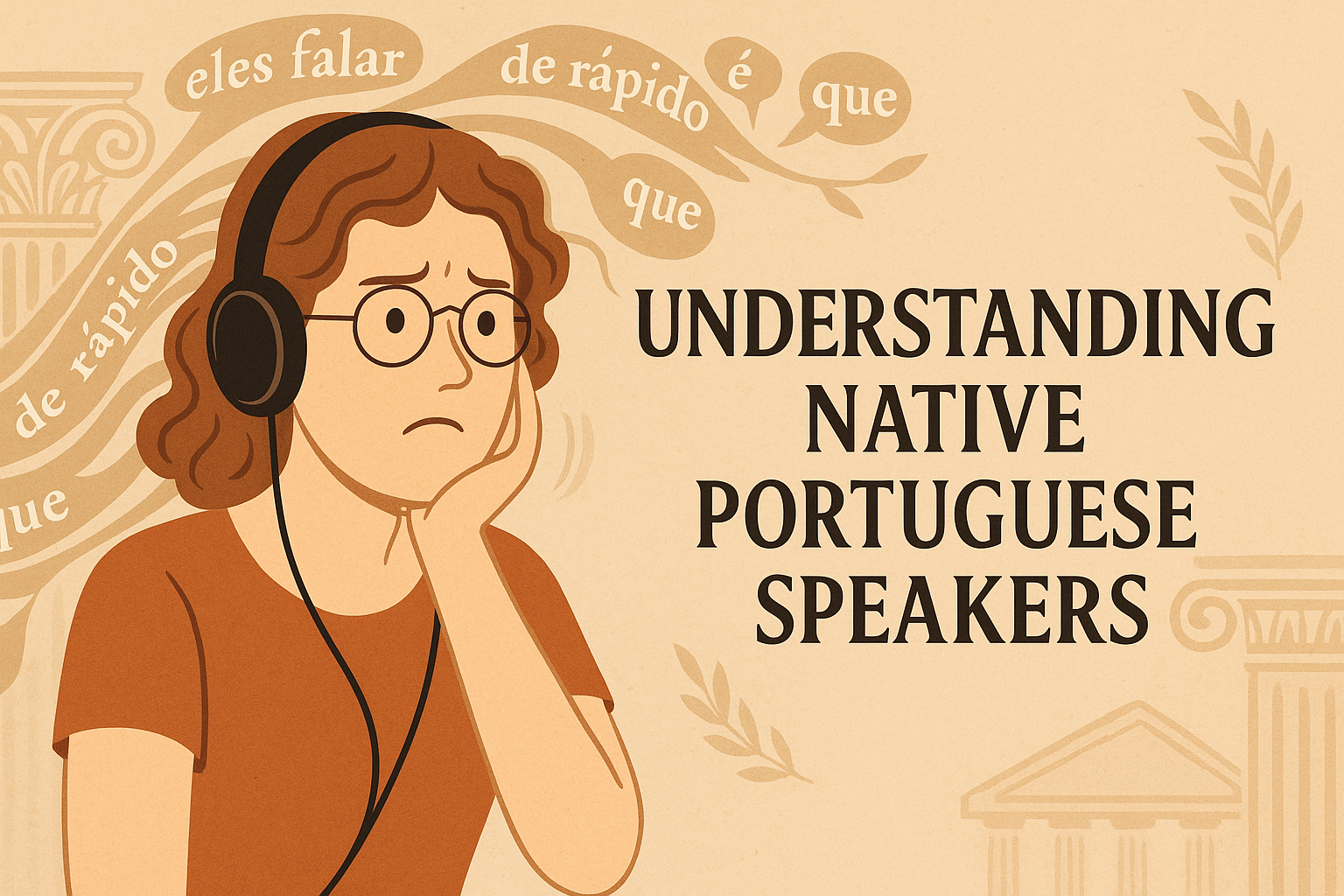
Learning Strategy & Planning
Understanding Native Portuguese Speakers: Why It’s So Hard (and How to Get Better)
You’ve studied vocabulary. You’ve learned some grammar. Maybe you’ve even had a few conversations.
Then you try to listen to native Portuguese speakers and suddenly, it’s like a blur of sound. You catch a word or two… and miss the rest.
Sound familiar? You’re not alone.
Here’s why understanding native speakers is so hard—and how you can make it easier.
🧠 1. Native Speech Is Fast, Compressed, and Muted
European Portuguese is known for:
- Swallowed vowels (especially at the end of words)
- Linking between words
- Dropped sounds that make words hard to identify
This means that even if you “know” the vocabulary, your brain may not recognise it in spoken form.
📉 2. You’re Hearing Natural Speech, Not “Learner Portuguese”
Apps and beginner dialogues are slow, clear, and idealised.
Real-world Portuguese includes:
- Slang and idioms
- Regional accents
- Rapid speech with no pauses
It’s a shock to the system—but a normal and necessary stage in your learning.
👂 3. Your Brain Needs Time to Adapt
Listening is a skill that develops gradually. You’re not just hearing sounds—you’re training your brain to:
- Segment speech
- Predict what comes next
- Interpret unclear pronunciation
This takes exposure and time but it works.
🔧 How to Improve Your Comprehension
🎧 Listen Every Day (Even If You Don’t Understand)
Exposure builds recognition. Try:
- Podcasts like Practice Portuguese (especially their short dialogues)
- RTP Play for real shows
- YouTube channels with Portuguese subtitles
🗣️ Shadow Native Audio
Choose a short clip. Play a sentence. Pause and repeat it out loud, mimicking the rhythm and tone.
This helps your ears, and your mouth, adjust to real Portuguese.
📼 Rewatch the Same Material
Watching something once = recognition
Watching it again = comprehension
Pick a favourite show or video and revisit it. Each time, you’ll catch more.
📈 Track Your Wins
Write down:
- Words or phrases you finally recognised
- Episodes that felt easier than before
- Conversations where you followed the gist
These mini-victories prove you’re improving, even when it feels slow.
🎯 Final Thoughts
Struggling to understand native Portuguese speakers isn’t a failure, it’s a rite of passage.
Keep listening. Keep repeating. Keep going.
Your brain is doing more than you think and one day things will click into place.